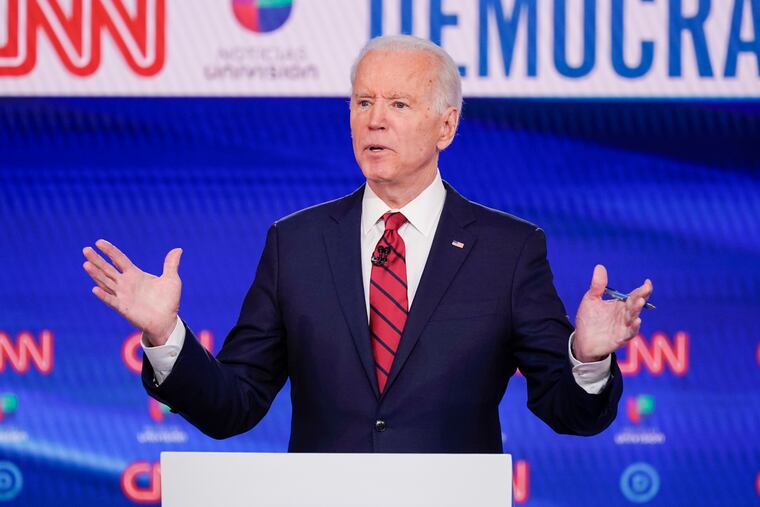Coronavirus crisis puts Democratic convention in doubt, Joe Biden says
Asked whether he could envision holding the convention in July, given the concerns about large gatherings, Biden said, “It’s hard to envision that.”

Joe Biden raised significant doubts about whether the Democratic National Convention will be held as planned in July, with the likely presidential nominee suggesting that the party's major gathering, slated for Milwaukee, may need to be altered or postponed.
When asked whether he could envision holding the convention in July, given the novel coronavirus pandemic and concerns about large gatherings, Biden said, “It’s hard to envision that.”
"We should listen to the scientists," the former vice president told Brian Williams in an interview that aired late Tuesday night on MSNBC.
Biden noted that one reason the convention has been scheduled for mid-July was to accommodate the Olympics, which had been scheduled to begin July 24. Given that the Summer Games have been postponed to next year, Biden raised the possibility that the DNC could postpone the convention, saying, "there is more time now."
The Republican convention is scheduled for August in Charlotte.
"We ought to be able to do what we were able to do in the middle of the Civil War all the way through to World War II - have Democratic and Republican conventions and primaries and elections, and still have public safety," Biden said. "We're able to do both."
Biden also made the case that the November election may be different from any other before it, and he called on states to begin preparing now for more absentee ballots. He also said secretaries of state throughout the nation needed to consider a virtual election, with secure remote voting.
"They should be doing that now, planning on it," he added. "This is about making sure that we're able to conduct our democracy while we're dealing with a pandemic. We can do both. It may mean a difference in the way we do it. It may mean that social distancing doesn't get it done. It may mean that you have a circumstance where you have drive-in voting, literally. You pull up and have - there's a lot of ways to do it. But we should be talking about it now."
During the interview, Biden also again appealed to supporters of Sen. Bernie Sanders, I-Vt., but he refrained from calling on his last remaining rival for the Democratic nomination to leave the race.
"Bernie has a lot of very, very strong and ardent followers. And I think it's a hard decision," Biden said. "I'm not going to tell him to stay in or get out, that's his decision. But I feel confident about being the nominee, I don't see much that's going to change that."
Sanders said Monday that he still believed that he had a narrow pathway to the nomination.
"Obviously I've - we've been talking to Bernie's people," Biden said. "I have respect for him, and I think there ought to be a way for us to accommodate his concerns on other matters in terms of everything from people being engaged in his organization - I think there's a lot of things that can be done. But that's a decision for Bernie to make."
Biden said within the next two weeks he would form a group within his campaign to start doing background checks on potential running mates. He said the list would be somewhere between six and 10 candidates, and he suggested among them could be Gov. Gretchen Whitmer, D-Mich. Biden has said he will choose a woman as a running mate.
When asked whether, given her leadership in response to the coronavirus outbreak in her state, he was lengthening his list of people to consider, Biden responded: "She hasn't lengthened the list. She made the list, in my mind, two months ago."
Biden also continued to criticize President Donald Trump for his handling of the global pandemic, saying that he should have done more and sooner. Biden said that if he were in charge, he would appoint one person to lead the administration's response.
"I would find someone in the administration who was a former general or used to organizing massive efforts," he said, adding he would also consider his former chief of staff, Ron Klain, who also headed the Obama administration's response to the Ebola outbreak.
Later he said: "This is a war. You need a general. Put somebody in charge."
Biden also suggested that Trump could learn lessons from what Obama did during similar moments of crisis.
“It would be wise if the president - if Trump called President Obama,” Biden said. “I’m not sure that he’s likely to do that.”